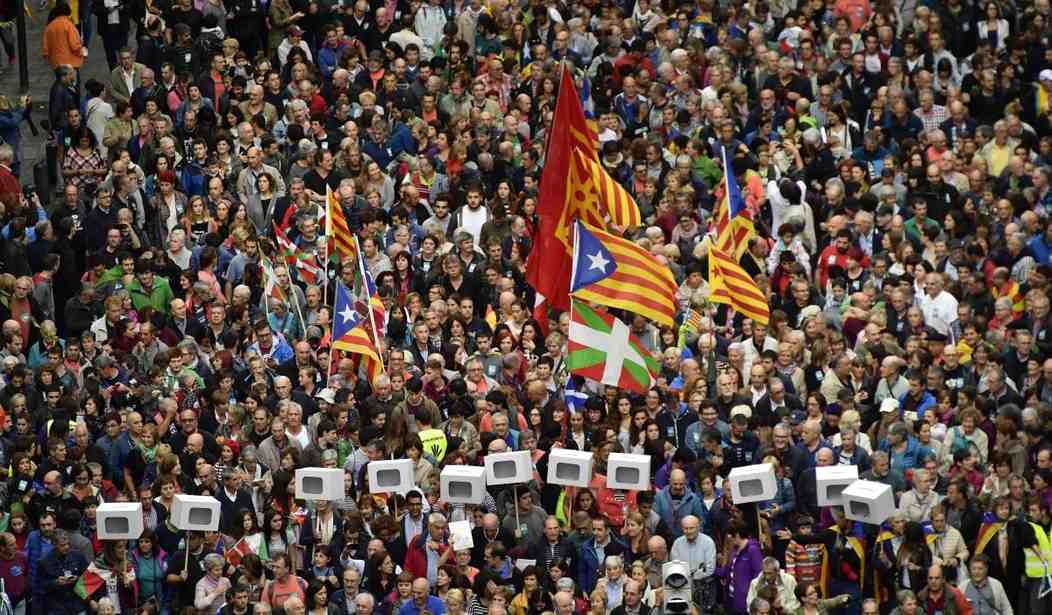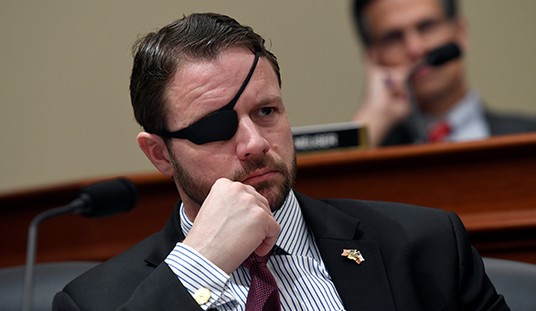The Catalan Parliament has voted to constitute “the Catalan Republic, as an independent and sovereign country, under the rule of law.” The Catalans are the exemplars of the New Nationalism: the spiritual center of the independence movement is the ancient Benedictine monastery at Montserrat. Spain is a dying country and the Catalans want their own chance to strike out on their own. They have my sympathy. Of all the European nationalist movements that have asserted themselves during the past two years, the Catalans are the most sympathetic.
As I have argued for some time, there is a rational reason for Catalonia to leave Spain.
Spain will implode during the next 20 years, simply because its population is aging so fast that the cost of supporting its elderly will break the national budget. That is less an economic failure than a cultural one. Spain once was Europe’s most Catholic country, with a correspondingly high birth rate. Its Civil War of 1936-1939 brought to power a Catholic caudillo, Francisco Franco. After his death in 1975 Spain became a constitutional monarchy, but the Spanish people eschewed the national-religious regime that Franco had enforced. Spain abandoned the altar as well as the cradle, and the economic consequences of its cultural revolution will become woefully manifest over the next two decades.
Spain’s fertility rate fell from nearly 3 children per female during the 1970s to just 1.3 today, which means that its elderly dependent ratio will rise from 1 retiree per three workers today to 3 retirees for every 4 workers in 2050.
Economics is a rationale for independence but it is not what motivates the Catalans to risk life, limb and liberty in its pursuit. Catalonia has lived reluctantly under the Spanish yoke for hundreds of years. In Germany, Luther’s Bible translation established the national language. In Spain, Catalan preceded Spanish in Bible translation.
Some years ago I saw in the Biblioteca Marciana in Venice two pages of the 1478 Catalan translation of the Bible, the only printed vernacular edition in 15th-century Spain. It was made by a Valencian monk with the assistance of the local rabbis. Only these two pages survive, because the Inquisition burned every printed copy. Vernacular Bibles, the Inquisition believed, encouraged Protestantism. I believe that one motivation for Spain to expel the Jews in 1492 was the fear that where Jews lived, there were Bible translations, and where there were Bible translations, there were Protestants.
The critical point about the Catalans is that their incorporation into Spain was never cultural or organic. Bible translation was the foundation of the German national language and therefore the source of German unity. It was also the foundation of the English state (Henry VIII after breaking with Rome ordered that a printed English Bible be placed for study in every church). That effort began with Wycliffe two centuries earlier. But the first printed vernacular translation of the Bible was in Catalan, and it was suppressed by the Spanish. When Charles V went into retirement at San Yuste, he had to get special permission from the Inquisition to keep a French translation of the Bible. I know of no officially sanctioned Catholic Bible translations into Spanish until 1825. Not that it mattered: 75% of Spaniards were illiterate as late as 1850.
In no sense are the Catalans part of a Spanish “nation.” They never have been.
Spain thus suppressed Protestantism as well as Judaism, and–unlike France, England, and Germany–had no religious war. In fact, Spain postponed its religious war until 1936, when it was fought between Soviet-backed atheists and Nazi-backed Catholics. That was the Goetterdaemmerung of Spanish culture. It is ironic, and perhaps not accidental, that the father of modern Catalan nationalism, Jordi Pujol, addressed Israel’s Knesset in 2007 and declared that Zionism and the Bible had been his inspiration since the age of 17 when he first read Herzl’s “The Jewish State.”
There are two 20th-century Spaniards who affected my life deeply. Both are Catalan musicians: the incomparable cellist and conductor Pablo (Pau) Casals, and the glorious soprano Victoria de los Angeles. In their memory, and with gratitude, I say with the Catalans, “Visca Catalunya.” They have a long and painful path ahead and I wish them success. The Madrid government will attempt to take direct control of the regional government, and will probably face mass civil disobedience by the Catalans. The civilized British and Canadians allowed the Quebecers and Scots to vote on independence. The Spanish are threatening Catalonia with an iron heel. Americans who cheered Britain for voting for Brexit and supported Poland, the Czech Republic and Hungary for standing up to the European Community over mass Muslim immigration should support Catalan nationalists as well.











Join the conversation as a VIP Member